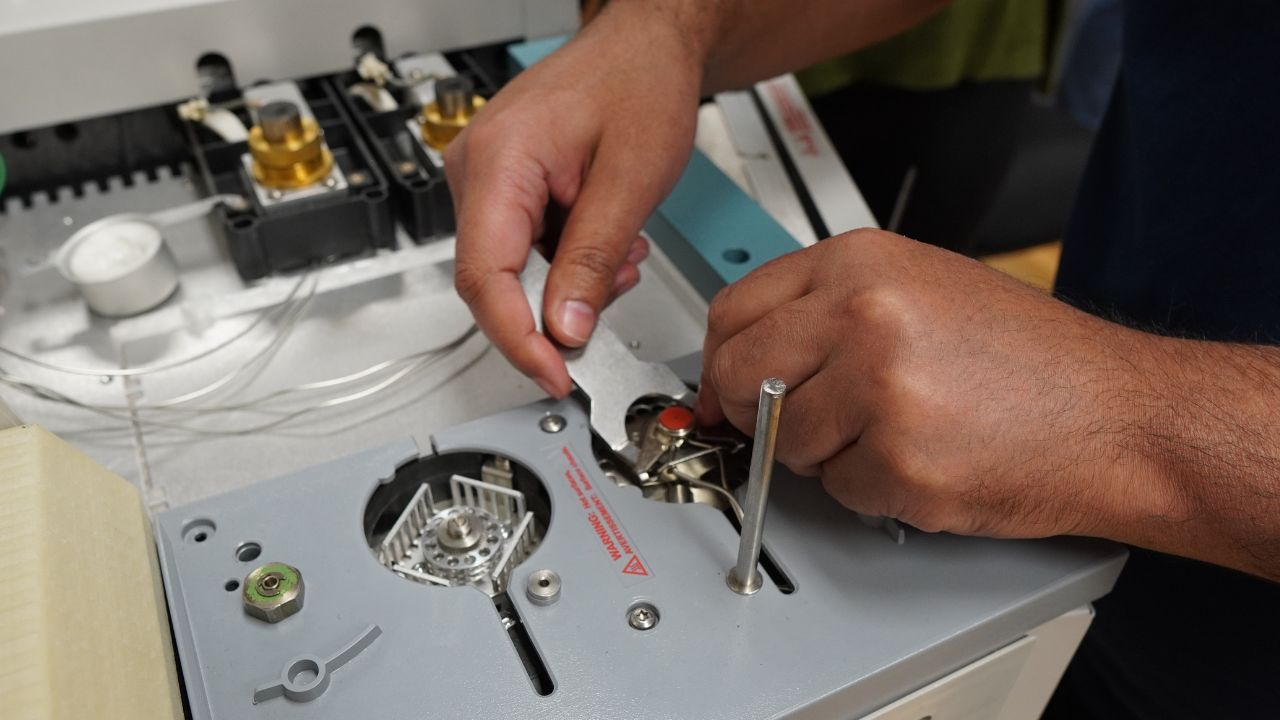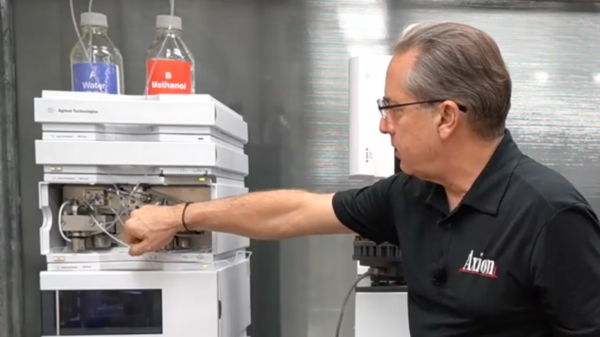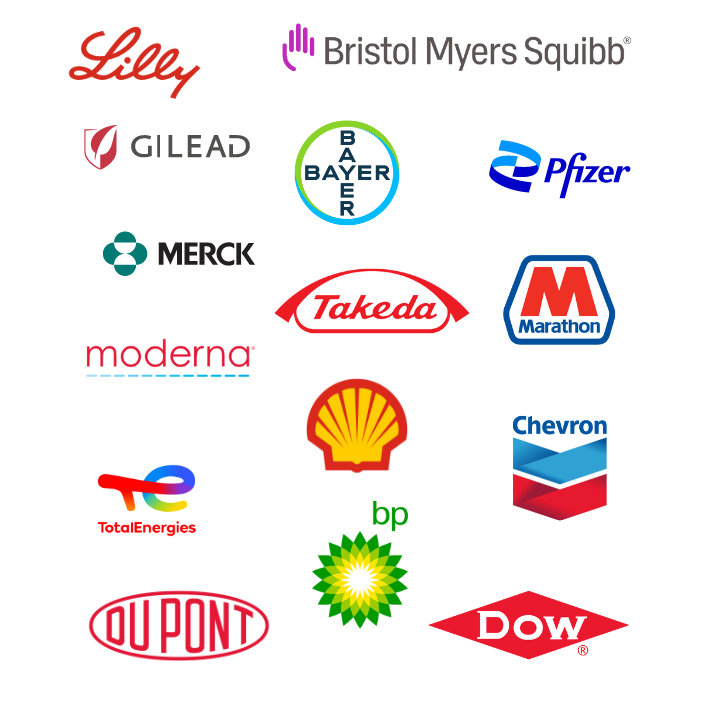Virtual LC/GC Bootcamp
18 Fun Lectures | 10 Fun Labs
This is the recorded version of our in-person and hands-on LC/GC Bootcamp. We recorded this course at Axion Labs & Training Institute on Oct. 18-22, 2021. The foundation for the virtual course is the recorded lectures.

Axion has provided advanced chromatography training to every major pharmaceutical, chemical, and petroleum company in the US since 1999.
There are millions of HPLCs and GCs in labs at companies like these around the world.
They are always looking for top professionals with valuable skills.
And they want their employees to develop technical mastery.
The LC/GC Virtual Course Will Give You Advanced Skills
Your ultimate online course to level-up your chromatography skills from wherever you are.
This is the recorded version of our in-person and hands-on LC/GC Bootcamp. The foundation for the virtual course is the recorded lectures.
Lectures: You will get the recorded lectures plus course slides that teach you the science behind chromatography
Labs: Dr. Lee Polite will walk you through each lab experiment.

GC: In the 18 lectures and 10 labs you will learn
Choose the right inlet for your application. Split/splitless, multi-mode inlets, cool on-column, etc.
See how oven temperature impacts the separation.
Master the resolution equation.
Maximize efficiency by understanding the VanDeemter and Golay equations.
How to choose and install a column.
What detector to use? TCD, FID..
9-step funnel that will enable you to troubleshoot your GC.
And more.

HPLC/UPLC: In the 8 lectures and 3 labs you will learn
5 different modes of HPLC: reversed phase, ion pair, normal phase, ion exchange, and size exclusion.
Install a column.
Adjust parameters to control capacity, selectivity and efficiency.
UV-Vis detectors. Refractive index (RI) detectors.
When to choose reversed phase column.
Troubleshoot common problems. Pressure fluctuations, baseline fluctuations, ghost peaks, tailing peaks, fronting peaks, doubled peaks.
And more.
By the end of this course you will be able to take a complete unknown for the GC and the HPLC and you will develop new methods using everything that you have learned.
You will deliver a method with adequate separation and then optimize that method for resolution, speed and sensitivity.
Success Means More Than Just Pushing Buttons.
Master how LCs and GCs work and the science behind separation.
You have a AS, BS, MS or even a PhD.
You can follow standard procedures.
Can you choose the right stationary phase, particle size, flow rate, column dimensions, mobile phases, and buffers and create a robust optimized HPLC method?
Can you install and change columns and perform maintenance on both HPLCs and GCs?
Can you select the correct column chemistry, length, column diameter, film thickness, carrier gas, and temperature gradient to develop a GC method?
Can you efficiently troubleshoot and solve issues with separation and operations of your HPLCs and GCs?
LC/GC Virtual Course Curriculum
Don’t let a lack of knowledge hold you back from exceeding expectations and advancing your career.
This course offers 18 lectures and 10 labs.
Example: In the classroom you learn that choosing the correct oven temperature is critical for good GC resolution. Then you will watch Dr. Lee Polite analyze real samples on the GC, vary the temperature, and see for yourself how oven temperature affects separation.
Module 1
Introduction to GC
How does GC, the world’s most popular analytical tool, fit into the analytical chemistry toolbox? What is the difference between gas chromatography and liquid chromatography? How GC proves that kale is bad for you. When to choose GC over HPLC. Learn the main advantages of GC over HPLC.
GC Inlets
Understanding GC inlets is crucial for troubleshooting. Learn how to choose the right inlet for your application. Learn about Split/splitless, multi-mode inlets, cool on-column, etc. Learn how to maintain your inlet
Lab 1: Introduction to GC + Temperature
See Lee make real injections and test how varying temperature changes the resolution. Understanding fully how oven temperature impacts the separation is a fundamental tool to developing and optimizing GC methods.
Resolution
A deep dive into the master resolution equation. You will learn how to control the three factors that are necessary for a good separation – capacity, selectivity and efficiency.
Lab 2: Split Ratio
A series of experiments with varying split ratios.
Lab 3: Split/Splitless
Explore the utility of split and splitless techniques.
Module 2
GC Theory
Understand the VanDeemter and Golay equations to minimize band broadening aka maximize efficiency. This will keep your peaks as tall and skinny as needed. Eddy diffusion, longitudinal diffusion and mass transfer are explained. You will understand how different carrier gasses and column diameter, column film thickness and carrier gas linear velocity interplay to determine efficiency.
Capillary Columns
“In the olden days I used to make capillary columns by hand.” – Lee Polite
How to choose a column that will work for your application? You need to pick the right column diameter, length, film thickness and stationary phase. Learn how in this module. What is the best way to store your GC columns? How to condition your column.
Lab 4: GC Parameters
In this lab you will put your new-found GC theory understanding to work. See Lee play with all the most important parameters in GC.
Lab 5: GC Quant
Qualitative and Quantitative Analysis
How can you confirm that a peak is what you think it is? What methods exist to measure (quantify)? You will learn a variety of quantitation procedures and calibration methods
Lab 6: Column Installation and Maintenance
Lee will show you how to remove and then install a GC column and then test for performance.
Module 3
GC Detectors
What detectors do you use? Thermal conductivity (TCD), Flame ionization detector (FID) discussed with emphasis on FID. Other detectors can be discussed as requested.
GC/MS Talk and Demo
Learn how a modern mass spec works to “weigh a molecule”. How do molecules get ionized and then how are their masses measured?
Introduction to HPLC
Learn how HPLC fits into the broader picture of chromatography. When to choose HPLC over GC? Learn how 5 different modes of HPLC compliment each other: reversed phase, ion pair, normal phase, ion exchange, and size exclusion.
Lab 7: LC Parameters
HPLC Instrumentation
You’ll get a thorough overview of modern HPLC instrumentation including pumps, injector, column and detectors.Learn how to install a column and how to solve and avoid the most common problems.
Resolution and Theory Review
The beautiful thing is that you already know the fundamentals of chromatographic separation. You know that controlling capacity, selectivity and efficiency is the key. In this module you will learn what parameters to adjust on the HPLC to control these factors. We also introduce the concept of particle diameter as a key factor for good separations.
Module 4
HPLC Detectors
Gain a conceptual understanding of how UV-Vis detectors give both qualitative and quantitative measurements in HPLC. Refractive index (RI) detectors are also discussed.
HPLC Columns
We survey a range of column packing materials focusing on popular bonded phases. You will learn the mechanism of reversed-phase separation, and when to choose reversed phase.
How do common functional groups interact with packing material? How can you predict the elution order? How to reduce the time for each analysis while maintaining resolution? When do you need to use a long or a short column? What about guard columns? You will learn all the answers to these questions.
Reversed Phase of Acids and Bases
Don’t you love acid/base chemistry! Learn how acidic, neutral and basic compounds interact with the column and how to prevent peak broadening using buffers. Why use a base deactivated column?
Lab 8: Determination of Caffeine in Soft Drinks
HPLC Troubleshooting
Wat problems do you encounter when using HPLC? High pressure, low pressure, pressure fluctuations? Baseline fluctuations, ghost peaks? Tailing peaks, fronting peaks, doubled peaks?
All of these are common problems with simple solutions that you will understand now because you understand how a HPLC works. We also show you how to test if your HPLC is working correctly before you start a project.
LC Method Development
Need to develop a brand new method or want to optimize an existing method? You will learn those skills in this module. You’ll learn how to employ a variety of gradients and method building techniques to deliver a fast and robust HPLC method that delivers the resolution that you need.
Lab 9: LC Method Development
We will give you a complete unknown and you will develop a method using everything that you have learned. You will have to deliver a method with adequate separation and then optimize that method.
Module 5
GC Method Development
Learn a systematic approach to developing and optimizing GC methods. Learn how to analyze solubility, concentration and matrix and the goals of the analysis to select the proper inlet, detector, column, and oven temperature. Then learn what parameters to adjust to increase cycle time, improve resolution or increase sensitivity.
Lab 10: GC Method Development
Similar to the HPLC method development lab, we will give you an unknown sample and you will have to develop a method completely from scratch. Then you will optimize that method using all that you have learned in the course
1:30 GC Troubleshooting
You will learn a 9-step funnel that will enable you to troubleshoot your GC. You will evaluate a variety of real world problems and diagnose using your understanding of modern GC systems. There is a focus on the inlet and detector problems as they are a common source of problems
This course is fast paced and fun! Yes, hard to believe but not only do we learn chromatography we also have fun while doing it.
Bonus: Join the discussion forum to ask questions about the lectures and labs.
What Our Students Say
The LC/GC Virtual Bootcamp
$1686
Receive instant access to the course.
Bonus: If you decide to attend an in-person LC/GC Bootcamp after buying the virtual course you will receive a discount equal to the price you paid for the virtual course.
Bonus: After finishing the virtual course you will qualify to take the advanced topics course.
Do you have questions?
See All Of Our On-demand Courses
Varying Prices
We have LC specific courses and GC specific courses plus check out our webinars in Axion Lite.
Bonus: After buying a course, if you choose to come to an in-person LC/GC Bootcamp you will get a discount of the price you payed for the course.
Take Your Chromatography Skills to the Next Level
Master chromatography and take the drivers seat of your HPLC/GC and of your career.

